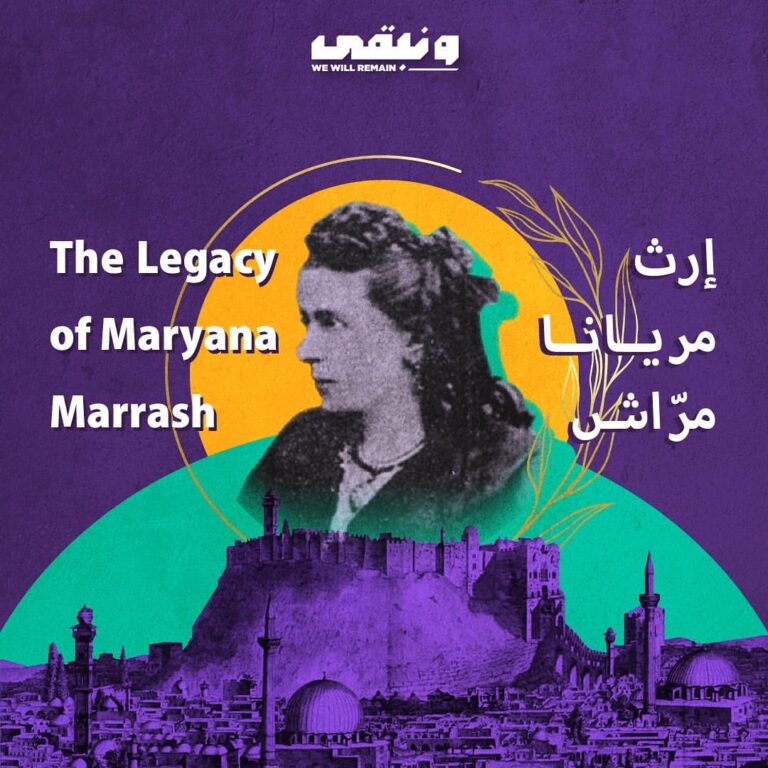
Artist Interview: Layal Watfeh
Get to know the Toronto-based Syrian award-winning musician, voice actor, and composer Layal Watfeh

Maryana Bint Fathallah Bin Nasrallah Marrash, known more simply as Maryana Marrash or Maryana Marrash the Aleppine, was a Syrian writer, poet, and feminist during the Nahda, the Arab Renaissance that took place mainly in Egypt and the Levant. She was the first “Arab” woman to write and publish articles in newspapers, a collection of poems, along with founding the first “literary salons”. Maryana was born in Aleppo in 1848 to a Melkite (Greek Catholic) family when Syria was still under Ottoman rule, a time when women were completely void of rights to education. Her father Fathallah Marrash sought to educate her, challenging prevalent social norms at the time.
Supported by him (father) and her two brothers, she attended a convent for nuns in Aleppo where she learned French, then moved to Beirut to attend an Evangelical school where she received a formal education of the structure of the Arabic language, math, and sciences. She also played the qanun, piano, and was known to sing beautifully. Her pathway to journalism began in the 1870’s. Upon a request from Salim Al Bustani, the chief editor of Al Jinan (an Arabic political magazine in Beirut), her piece “Shamet Al-Jinan” was published. She officially became the first Syrian woman to have published an article in a magazine.
She then contributed to Al-Jinan and the Lisan Al-Hal newspaper in Beirut, publishing literary criticisms of the situation of Arab women, in which she encouraged them to demand education, challenge tradition, and express themselves. In her most famous article, “Jnun al-Qalam”, she called on writers to rethink their methods of writing and content, encouraging creativity. In 1893, Maryana published a poetry collection called “Bint el Fikr”, which included poems about flirtation, praise, and mourning. In order to get a permit to print her book (during a time when social movements were scrutinized by the Ottomans; Al Jinan ceased to exist in 1886, for example), she wrote a poem praising the Ottoman Sultan Abdul Hamid II.
Her book, “The Modern History of Syria”, was the first book about the Ottoman period. After her travels in Europe, she became very fond of the European lifestyle, which led her to establish the first literary salon upon her return to Syria, a space in which writers, intellectuals, and thinkers of both sexes gathered. Her unsegregated salon included well-known Syrian Nationalists, Arab Nationalists, icons, and writers of various faiths. Her salon facilitated opportunities for discussing, exchanging, and reading their latest works, which spanned from culture to politics, in an unconventional setting. Maryana passed away in Aleppo in 1919 at the age of 71, leaving a legacy that lives on over 100 years later.

Get to know the Toronto-based Syrian award-winning musician, voice actor, and composer Layal Watfeh

Muhammad Faris, an exceptional and prominent figure in the history of space, is considered the second Arab person to set foot in space. He was born in the city of

These remarkable Syrians in Europe embody resilience, creativity, and activism. Let’s celebrate their contributions and recognize the richness that diversity brings to our shared European tapestry.